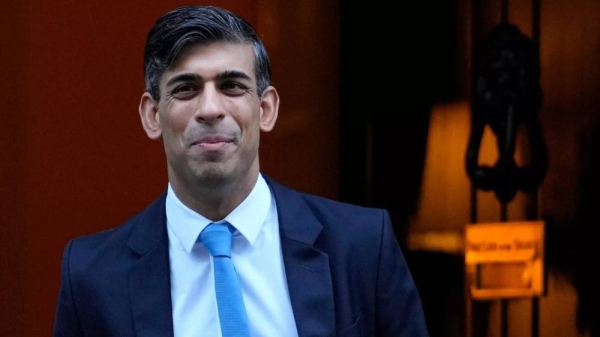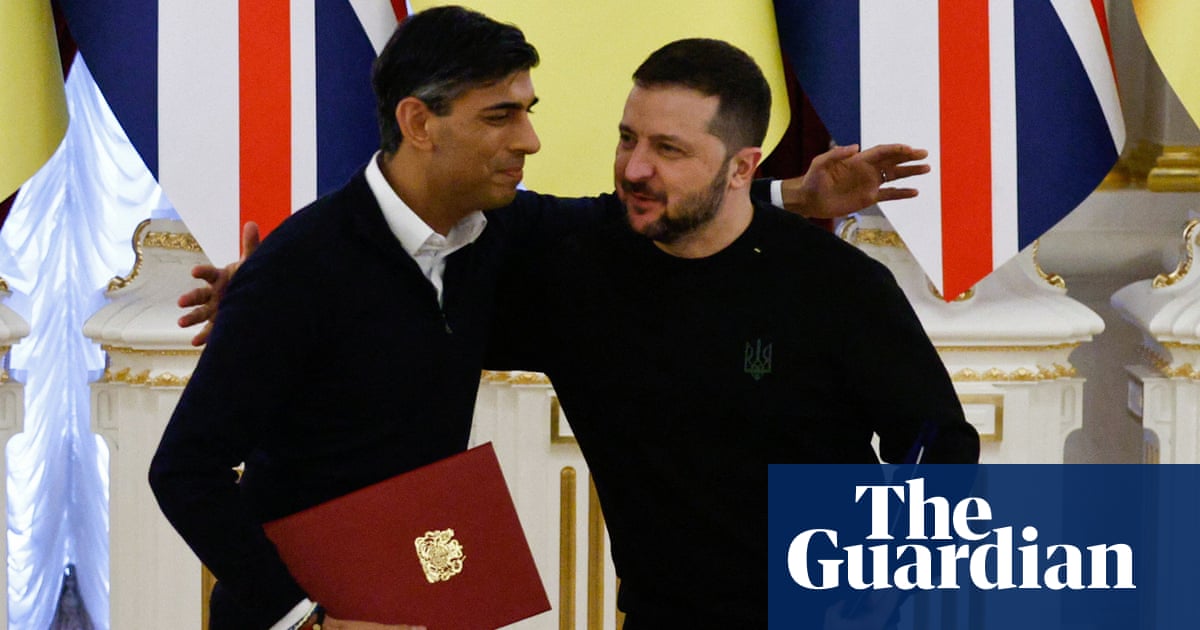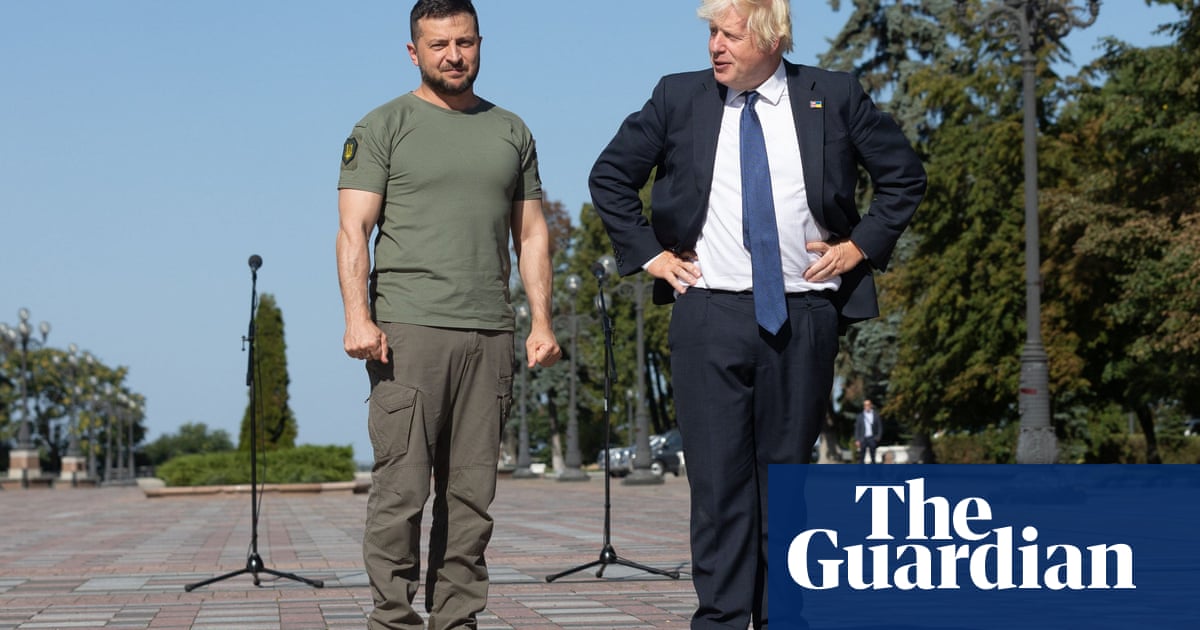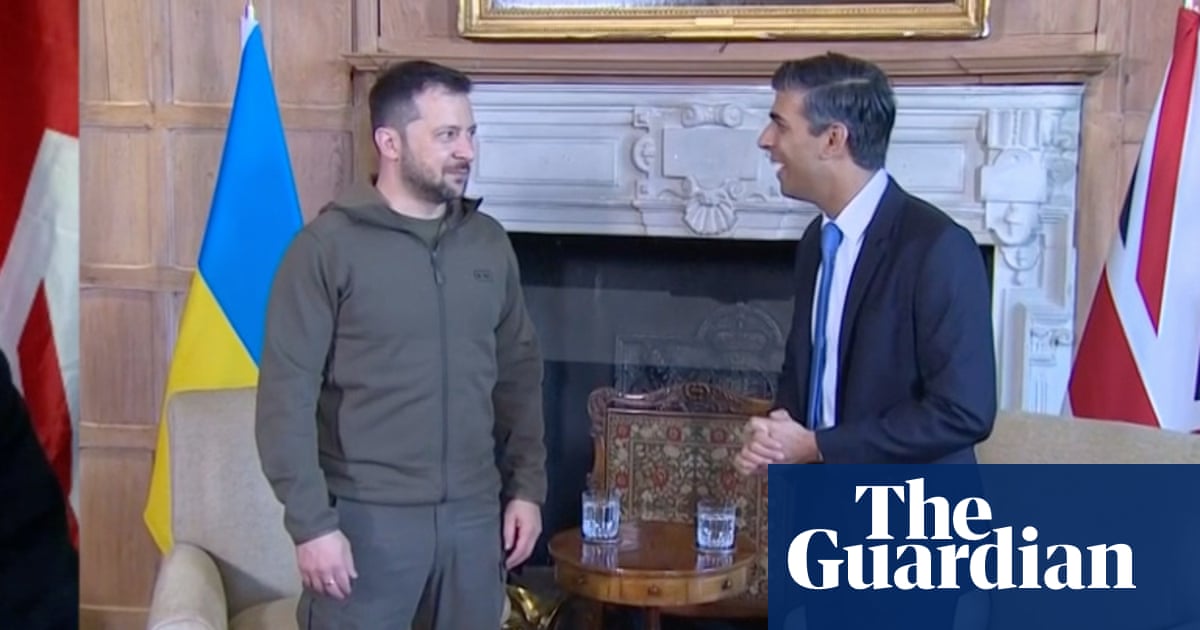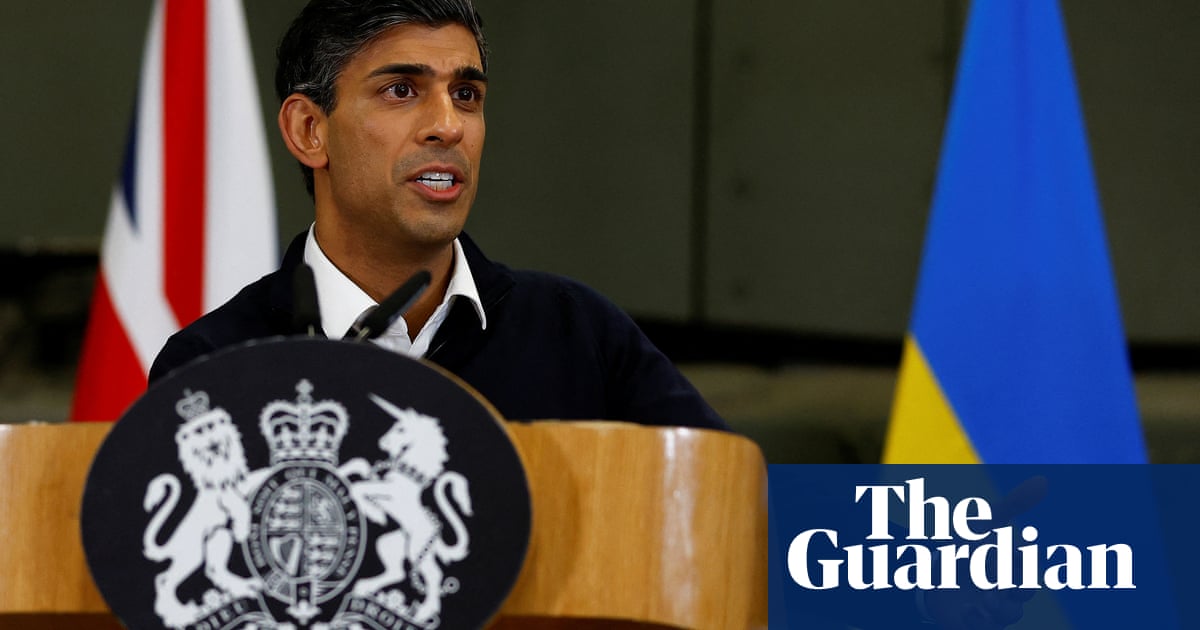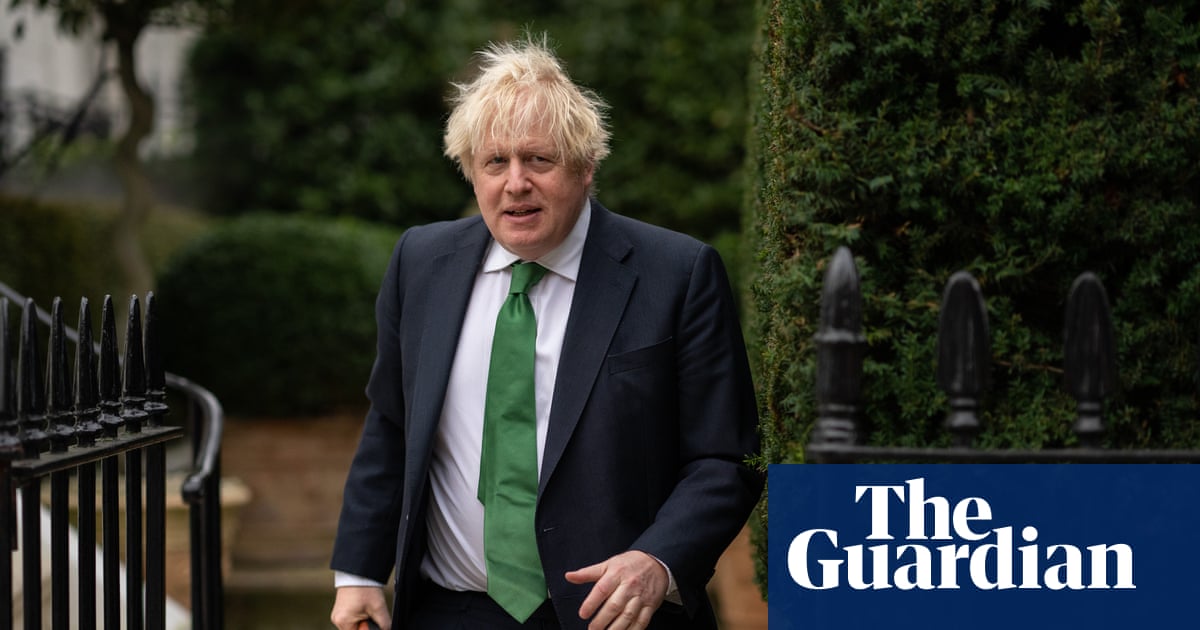
Rishi Sunak made a surprise visit to Kyiv on Saturday to meet Ukraine’s president, Volodymyr Zelenskiy, in his first visit to the country since taking office.
Zelenskiy posted a video on Saturday showing him meeting Sunak in the capital. “During today’s meeting, we discussed the most important issues both for our countries and for global security,” he wrote on the Telegram messaging app.
Following in the footsteps of Boris Johnson and Liz Truss, Sunak has pledged that UK support for Ukraine in the fight against Russia will remain steadfast.
“In years to come, we’ll tell our grandchildren of your story, how proud and sovereign people stood up in the face of an appalling onslaught, how you fought, how you sacrificed, how you prevailed,” Sunak said at a joint press conference.
In response, Zelenskiy praised a “meaningful and useful visit for both our countries”, during which the two leaders had discussed how to protect “European and Ukrainian energy security” and defence cooperation.
“With friends like you by our side, we are confident in our victory,” he added on Twitter.
Sunak, who has spoken to Zelenskiy on more than one occasion since entering Downing Street, used his appearance at the G20 this week to join with allies and other western leaders to condemn Vladimir Putin’s invasion.
Sunak’s arrival was accompanied by the announcement of a £50m package of defence aid comprising 125 anti-aircraft guns and technology to help Ukraine counter Iranian-supplied drones, including radars and anti-drone technology.
He laid flowers at a memorial for the war dead in Kyiv and lit a candle at a memorial for victims of the Holodomor famine, before meeting emergency personnel at a fire station.
Sunak said it was “deeply humbling” to be in Kyiv. “I am here today to say the UK and our allies will continue to stand with Ukraine, as it fights to end this barbarous war and deliver a just peace,” he said.
“While Ukraine’s armed forces succeed in pushing back Russian forces on the ground, civilians are being brutally bombarded from the air. We are today providing new air defence, including anti-aircraft guns, radar and anti-drone equipment, and stepping up humanitarian support for the cold, hard winter ahead.
“It is deeply humbling to be in Kyiv today and to have the opportunity to meet those who are doing so much, and paying so high a price.”
The visit comes as Kyiv and several other regions of Ukraine grapple with power shortages after relentless Russian attacks on critical infrastructure.
On Saturday, the head of Ukraine’s biggest private energy firm urged Ukrainians to consider leaving their country to help save energy.
Moscow, in an attempt to force Ukraine to negotiate a peace that is unacceptable to Kyiv, has sought to destroy the country’s energy system with a series of mass strikes on power and thermal infrastructures. No energy system has ever been subjected to such powerful airstrikes as to threaten such long periods of blackout.
As temperatures fall below freezing and the first snow of the season dusts the streets of Kyiv this week, people across Ukraine are starting to worry about how to heat their homes due to blackouts caused by the Russian bombardment while officials struggle to restore power nationwide.
In an interview with the BBC, Maxim Timchenko, chief executive of the energy firm DTEK, said Ukraine’s electricity system becomes less reliable with each Russian attack. He suggested that reducing electricity consumption was the key to keeping it running.
“If Ukrainians can find an alternative place to stay for another three or four months, it will be very helpful to the system,’’ he said, saying people should view leaving the country as a way of helping win the war against Russia.
“If you consume less, then hospitals with injured soldiers will have guaranteed power supply,” Timchenko added. “This is how it can be explained that by consuming less or leaving, they also contribute to other people.”
Zelenskiy said about 10 million people were without power, describing the electricity situation in more than a dozen regions as “very difficult”.
“The situation with power supplies is difficult in 17 regions and in the capital,” he said. “Things are very difficult in Kyiv region and the city of Kyiv, Odesa region and also Vinnytsia and Ternopil [areas in western Ukraine].”
On Saturday, Ukraine’s prosecutor general’s office said at least 437 Ukrainian children had been killed and more than 837 injured as a result of Russia’s invasion. The eastern Donetsk region was the most affected, with 423 children killed or injured, the office said.
Officials said the figures were “not final” as they were still verifying information from zones of active fighting, liberated areas and territory still occupied by Russian forces.
Ukraine’s military, meanwhile, said it was checking the authenticity of footage that Moscow has said proves that Kyiv executed several surrendering Russian soldiers in what they have described as a “war crime”.
Videos circulated on Russian social media this week purporting to show the bodies of Russian servicemen apparently killed after having surrendered to Ukrainian troops.
“Before launching an investigation, there must be grounds for it,” Ukraine’s spokesperson for the general staff, Bogdan Senyk, told AFP. “We are currently establishing whether these videos are fake,” he said, adding that they had been handed over to “specialists”.
In the footage, the soldiers, who are giving themselves up, lie down on the ground in the debris-filled back yard of a house before the video abruptly cuts off as shots are heard.
More footage shows the bodies of around a dozen people surrounded by apparent bloodstains.
“We are aware of the videos and we are looking into them,” a UN spokesperson told AFP on Friday, calling for the perpetrators to be held to account.
The Russian Investigative Committee, which investigates major crimes, said it had opened a criminal case into the “execution of captured Russian servicemen”.
The incident was not “the first and not the only war crime” committed by Ukrainian forces, a Russian defence ministry statement said.




